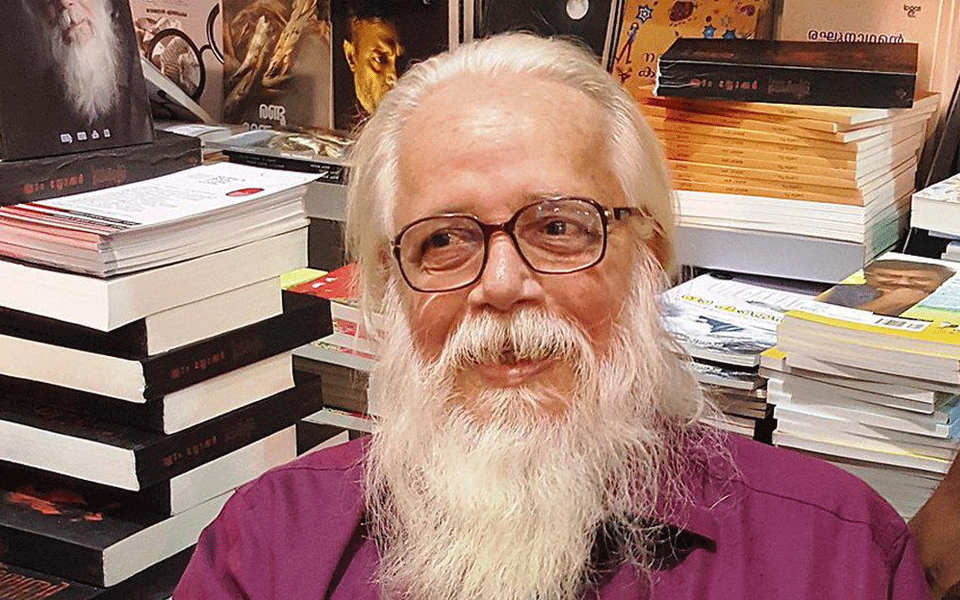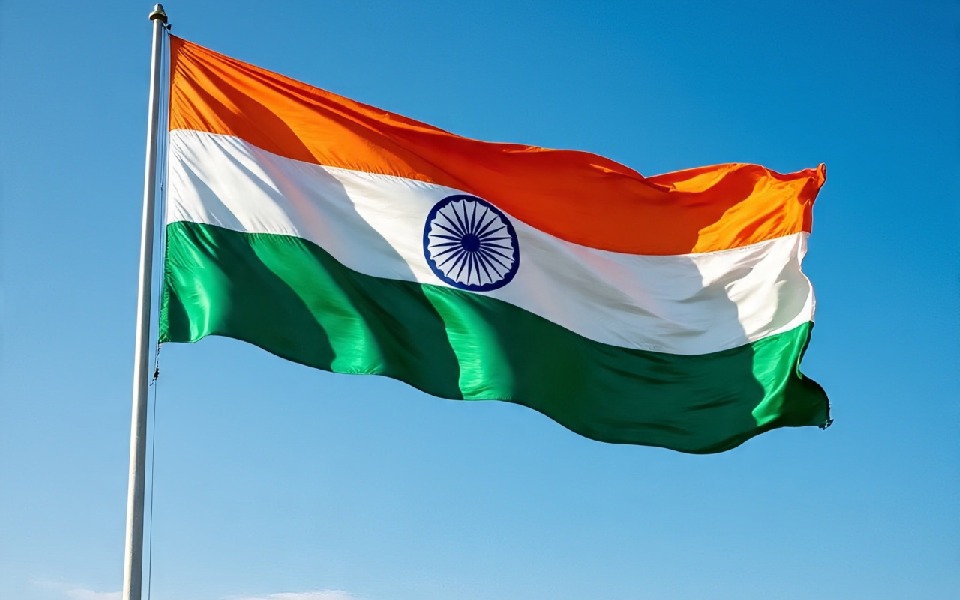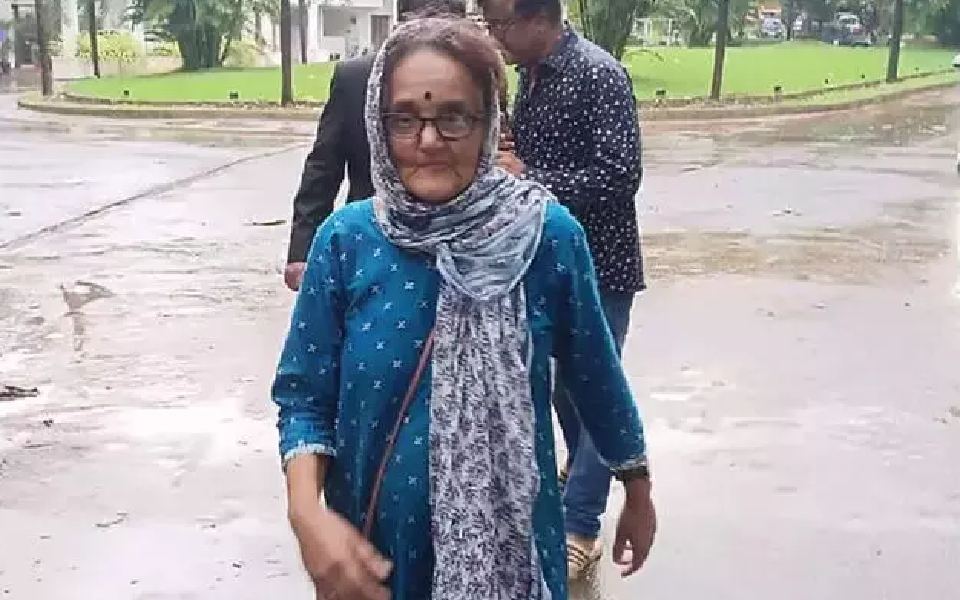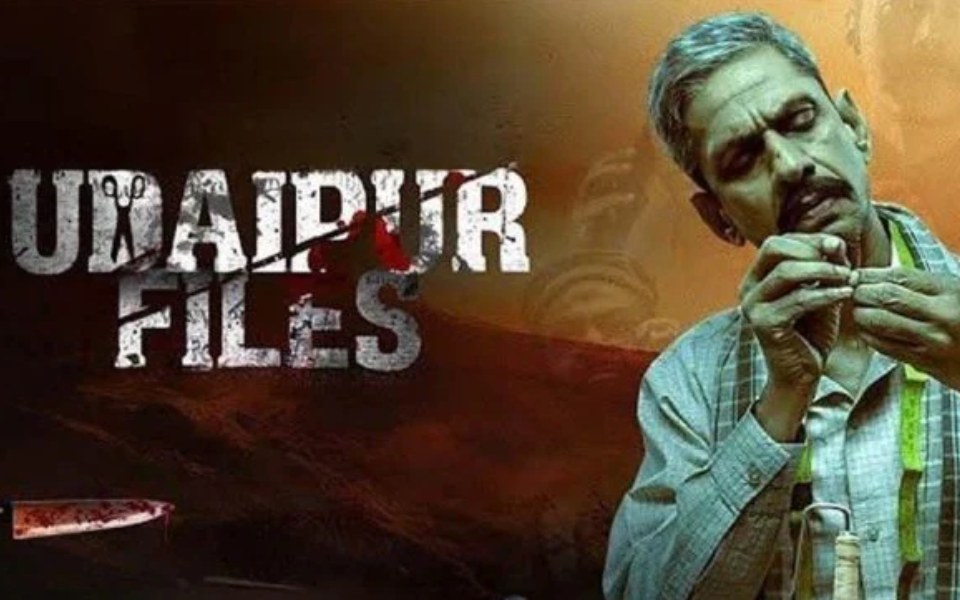The first to interrogate me were the ones who called themselves Satya and Dharma; two other men in vests and shorts stood behind me. It did not take long before I realised the two men had taken positions behind me to land blows on the small of my neck.
The senior began thus: “You are a brilliant scientist, an excellent manager, a national asset. So why did you do this?”
“What did I do?”
“Espionage.”
“What espionage?”
He cleared his throat. “Mr Nambi...sorry, Dr Nambi...”
“No, I am not Dr Nambi, mister suits me fine.”
“That’s okay, you are as good as a doctor,” the man assumed a satirical tone. “Now tell me why did you do this crime?”
“Please understand,” I replied. “I have done no crime. What is it that you really want?”
“Don’t bullshit. If you confess, your life will be easy; otherwise we know how to make you confess.”
That was the first sign of a threat.
“What is my crime?”
“You don’t know?” Now he stood up and sat down again. “We have proof that you sold the nation’s secrets, rocket technology to Pakistan. Now we want to hear that from your mouth. Tell us how did you do it? How much filthy money did you get?”
At this point, three others walked into the room. One wore a grey safari suit and was introduced by a thin, short person as “the biggest man in IB”.
Then suddenly, the thin man with a poke-marked face shouted at me. “You bastard, do you know what the charges against you are?” When I replied in the negative, he pulled out a paper from his file and started reading out the charges. I had sold sensitive rocket technology to Pakistan. This is an offence under the Official Secrets Act, punishable with a fourteen-year sentence.
Then, pointing to the “biggest man in IB,” he continued: “This great man has come all the way to hear it from your mouth. He reports directly to the most powerful person in the country. He has to return to Delhi soon, so you better confess everything now.”
It would occur to me only much later that the “biggest man in IB” was not really one, it was M K Dhar, the joint director of IB.
Now, I replied calmly: “I have nothing to tell you than the fact that I am innocent. This must be a misunderstanding.”
“No,” he barked. “We understand everything clearly. Now, tell us when did you first meet Mariam Rasheeda?”
“I never met her.”
“How dare you lie? She has told us everything. Come on, tell us the truth before we turn brutal. Accept everything or else you are gone.”
“Please believe me,” I said in a matter of fact tone. “I have never met these Maldivian women you are talking about. I don’t even know how they look. How can they say I met them?”
“If you continue to deny, I will bring Fauziyya here and make her slipper you. And that photograph will appear in all the newspapers.”
My mind was racing. What would be their motive? Why would the Maldivian women say they had met me?
The “biggest man in IB” and his associates soon left, and the prime interrogator continued.
“It is not just those two ladies who have confessed; your subordinate Sasikumaran also has. Now don’t try to hide anything.”
“What did you say?” I almost jumped from my chair. “Sasi has confessed? What is it that he has confessed?”
“So you are worried, Mr Nambi...” he smirked. “Sasi has told me everything...details of the drawings and documents of rocket science that you passed on to Pakistan through him, the several meetings you all had in Madras and Trivandrum, and how many millions of dollars you received.”
“See,” I assumed my calm posture again, “I don’t know what Sasi has told you and why. I am not worried about that. The point is that I have done no crime. I just don’t understand what you are talking about.”
It must have been night by then. A boy brought me some rice and sambar. I did not touch the food. Now, the two men left the room; another duo took over.
“Tell us, why did you do this?”
This set of interrogators were fresh, but the questions were as tired as me.
“You sold drawings of India’s Vikas engine and cryogenic engine to Pakistan,” said one.
“You clearly don’t understand rocket science. There are no classified drawings and no drawing has gone out of ISRO. Even if some get the drawings, they can’t make such an engine without active collaboration with us for several years. If you don’t know, India doesn’t have a cryogenic engine; we are still struggling to make one.”
“So you agree that you gave some drawings and documents?”
“No, I said nobody will buy your drawings and documents because nobody can make a rocket out of those papers. Do you know how we acquired the technology of the Viking/Vikas engine you are talking about? We spent 150 man years with French scientists at their facility in Vernon, France under a legal contract. We had hands-on training in everything including fabrication, assembly, testing and result analysis. In spite of all this we took more than sixteen years to make a Vikas engine. It is just not possible to transfer rocket technology by selling drawings and documents. Nobody will buy that.”
“Why not?” Now my interrogator was sounding not just absurd, but impervious to scientific explanation. “If Pakistan wants to duplicate Viking engine, can’t they do it using the drawings you gave?”
“Believe me,” I tried one last time to drive sense into this man who I was not sure was genuinely dull or just acting stupid, “drawings are not sufficient to make rockets.”
“You mean drawings are useless? Then why do you have them?”
“No, I said they are not sufficient. In the development of a rocket or an engine, drawings are but a minor part. Conceptual drawings are available in textbooks and journals. Nobody will pay money to buy them.”
A new team that came after the DIG’s lightning visit was more brutal. One of them shouted, “Get up, you bastard! You don’t deserve to sit anymore.” I stood up. I’d had no food all day. I had kept asking for water, which they gave. Now they stopped giving me water. They threatened to take me to a torture cell somewhere in Pathankot or Kashmir, where they said I could be killed and my body thrown away, without anyone asking any questions. “We would say that you escaped from our custody,” one of them said.
I visualised being killed and my body being thrown into snow- covered wilderness. And then, images of my father crossed my mind. I remembered his advice. If you face a crisis, he had told me as a child, be prepared for the worst. That night’s questioning by teams that came in shifts, not allowing me to sit or sleep for more than thirty hours, drained me. At one point, I felt a sense of coldness seeping into my body from the cement floor.
I felt dizzy, and thought it must be approaching death. It was easy to yield to it, end it all. For a moment I thought I should let myself go. But I fought back. I summoned that last warmth leaving my body, took deep breaths and stood my ground.
I spoke.
“You guys are committing a big crime, and you will be punished for this.”
Having bounced back from a point of ultimate submission to fate to a state of inevitable fight-back, I continued, “I will not leave you. Remember, you too have families.”
Suddenly I found myself threatening my torturers. Was that a flash of fear that crossed one of the faces?
“But you don’t know who we are, even if you do get out alive,” said one of them.
I said I would make sketches of each one of them, identify them, and hunt them down one by one.
Then one of them said in a tone of mock politeness, “Sir, we are doing our duty. If what you think is the truth and you stay vindicated, you can slap us with your slippers.”
Twenty-two years later, I have kept my slippers for them.
“When did you first meet Mohammed Aslam of Pakistan?” Now, what was this, I wondered.
“Who is Mohammed Aslam?”
“Don’t act. We know you are good at acting.”
“Honestly, I don’t know any Aslam.”
“Ok, let me help you.” The interrogator moved his chair forward, leaned a bit, and cleared his throat, and continued. ‘Mohammed Aslam is a well-known nuclear scientist from Pakistan. He came to India and struck a deal with you for rocket technology in 1985. Now accept it.”
I shook my head.
“I don’t know any Mohammed Aslam. But I want to know why Pakistan would send a nuclear scientist to get rocket technology. What’s the connection here? If India wants to do espionage on Pakistan, would it send APJ Abdul Kalam or U R Rao for that? Wouldn’t it be safer to send an unknown person? Does your story make sense to yourself ?”
The two men were by now appearing to be comical. They looked at each other, nodded their heads and continued. “You are right. We were only trying to see your reaction to such a statement. So you say it must be an unknown person. Who was that?”
It was now getting clear to me that these intelligence bureau men with visibly low intelligence had woven a story or an imaginary case of spying, but it was riddled with holes. They were seeking information to add muscle to that weak skeleton, with basic information about our working style and contacts. They wanted names, incidents and connections between them. They were constantly amending their story of fiction, and, in fact, I was inadvertently helping them make these changes to make their version a slightly less absurd one. I decided to stop clarifying and educating these morons, and stick to bare answers.
They kept asking for the name of the “unknown person”, I repeated that I had met no such person.
“Mr Nambi, you think you are smart,” he said. “But you should understand that we are smarter. We have more than twenty-five years of experience in interrogation. We have cracked tougher nuts than you. We pray for our daily bread while you bastards sell national secrets to enemies to amass wealth.”
The scene here was deteriorating rapidly – and violently.
Now two others entered the room. One, a short dark man in spectacles, came straight to me and started hitting me on the face. I stood still, receiving the blows. Nobody, not even my father had ever hit me. My mind was drifting in a sea of humiliation, confusion and sadness. I felt no physical pain.
The man who hit me shouted if I am afraid of anyone. The other officer sprang up with an answer: “Yes”.
I looked into his eyes and corrected him: “No”.
The man in spectacles looked bewildered, stared me for a moment and walked away with his associate.
The Panama smoker came near me and whispered: “Why are you getting bashed up? Why don’t you tell us the truth and be spared?”
“Because I don’t know any such person or any such deal.”
Now he was feigning to be helpful. “Don’t worry. You just give us any name. Give us a Muslim name.”
There, I thought, he was letting me in to the layers of his imaginary spy story. When I stood my ground, the officer said if I don’t go by their story line I would be handed over to some other team which would take me to Pathankot in Punjab. There, he threatened, I would be shot dead and the media will be told that I was killed in an encounter while trying to escape from the investigating team.
I asked for water.
“Unless you confess you are not going to get a drop of water,” he said. “You third rate criminal,” now shouted the subordinate officer, “you want water?”
My tormentors have taken out third-degree measures, I realised.
I had a choice: To stand by my innocence or yield to their designs. I was helpless, I may even be shot dead in Pathankot. But how can I tell myself, leave alone this bunch of goons who masqueraded as IB officials, that I could do anything against my mother land? After all, it was Vikram Sarabhai’s dreams and convictions that I followed to serve my country. I cannot let down Sarabhai, my father, my gurus and myself. I resolved to die if that was the way out of this mess.
The subordinate was holding a glass of water a couple of feet away from me, as if to lure me into parroting their cock-and-bull story. I got up from my chair.
“I don’t want water. I don’t want to sit any longer. I will stand here, without food or water, till you agree that I have done nothing wrong.”
Now the interrogators appeared to have been tired of making me tell things that went with their story line; so they decided to give a gist of their story so that I merely agreed. Having decided not to question or correct them, I listened as they gave me an outline of their creation:
The six accused in the ISRO spy case – Mariam Rasheeda, Fauziyya Hassan, D Chandrasekhar, D Sasikumaran, S Nambi Narayanan and SK Sharma – worked as a group and transferred rocket technology to Pakistan. Raman Srivastava was the leader of the gang that met on 24 January 1994 at Hotel Madras International and struck a deal with Zuheira, a Sri Lankan woman who acted as a conduit. Mariam and Fauziyya were funded by a Maldivian banker.
On 24 September 1994, money changed hands at Hotel Luciya, Trivandrum. Nambi Narayanan’s son Sankara Kumar received the money and handed it over to Sasikumaran at his house. This money was meant for floating a company to produce bullet-proof materials for export by Srivastava. Thomas
Kurisinkal, an industrialist based out of Cochin, was financing the operations. Aleksey Vasin, an officer of the Russian space agency Glavskosmos was involved in the transfer of technology. The plan was to use the drawings and produce Viking engine in North Korea with the help of Russian scientists. A company, a joint venture, was to be floated by Pakistan and Germany. These rockets were to be taken to Pakistan. Indonesia and Brazil were also involved in the deal.
When they summarised the story, I was not sure if I had to laugh or cry. Probably sensing that I was silently ridiculing the lack of logic in their concocted tale, the senior officer became blunt.
“Mr Nambi, we know nothing of this sort happened, but we want this story corroborated by you. All you have to do is mention the name of a Muslim friend.”
The cycle continued, with me naming Abdul Kalam and then Abubaker, my childhood friend who years later had come to me for help to get a job for his son in ISRO. I had told him that I would try if he qualified the written test. The boy did not.
All the while I was on my foot, refusing to take a chair, food or water. The two principal tormentors left and another man, who I reckoned as a Research and Analysis Wing (R&AW) officer, came in.
“You need not lie, just tell what you know. Also remember that we (R&AW and IB) submit different, independent reports to the higher ups. So be bold and tell the truth.”
I told him I have so far said nothing but the truth. After he left, however, I felt reassured. Also, sad that my organisation, ISRO, had not officially condemned our arrest. I wondered what Vikram Sarabhai would have done in these circumstances.

Excerpted with permission from Ready To Fire: How India And I Survived the ISRO Spy Case, Nambi Narayanan and Arun Ram, Bloomsbury.
Courtesy: scroll.in
Let the Truth be known. If you read VB and like VB, please be a VB Supporter and Help us deliver the Truth to one and all.
New Delhi, Aug 7 (PTI): The Ministry of Youth Affairs and Sports (MYAS) has launched an online quiz on the national flag and 25 top-scoring participants in the age bracket of 21 to 29 will get an opportunity to visit Siachen with Sports Minister Mansukh Mandaviya.
The quiz, according to the ministry, will "foster patriotism and enhance awareness about the Indian National Flag."
"This online quiz, hosted on the MYBharat portal (mybharat.gov.in), invites all citizen to participate and test their knowledge about the Tricolour," the ministry stated.
It will consist of multiple-choice questions and all contestants will be awarded an e-certificate.
"As a grand incentive, 25 top-scoring participants will be selected for a remarkable opportunity to visit Siachen in the company of the Union Minister for Youth Affairs and Sports, Dr. Mansukh Mandaviya," the ministry said.
"The selection of winners for the Siachen visit will be limited to youth between the ages of 21 and 29. The final selection of the 25 winners will be conducted through a computer-based lottery system from the pool of top scorers," it added.





